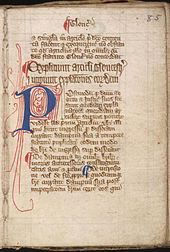 Britain is commemorating one of the most important political
documents in human history. England's King John signed the Magna Carta 800
years ago. It's considered the foundation of modern democracy and a crucial
influence on America's Founding Fathers, reports CBS News correspondent Charlie
D'Agata.
Britain is commemorating one of the most important political
documents in human history. England's King John signed the Magna Carta 800
years ago. It's considered the foundation of modern democracy and a crucial
influence on America's Founding Fathers, reports CBS News correspondent Charlie
D'Agata.
The Magna Carta is more relevant now than ever, and formed
the basis of our own Constitution, the Bill of Rights and the Universal
Declaration of Human Rights.
The queen, husband Prince Philip and Prince William were
among the royal family members to make the journey to a place called Runnymede,
a meadow west of London, where the historic document was signed.
The ceremony unveiled new artwork symbolizing one of Magna
Carta's most important clauses: 12 bronze chairs facing each other to signify
the right to a trial by jury.
A replica of the document on board the Royal Barge made its
way down the River Thames to the site over the weekend, leading a flotilla 200
boats.
Foreign Secretary Philip Hammond called it Britain's first
export of intellectual property.
"It inspired the Founding Fathers of the United States.
To this day, the image of Magna Carta is emblazoned on the great doors of the
Supreme Court of the United States," he said.
Four copies of the document survive, two of them held in the
British Library. Earlier this year, Prince Charles visited the National
Archives in Washington D.C. where a later version is on display.
Hastily scribbled on a single page of parchment, Magna
Carta, meaning "great charter" in Latin, was signed by King John by
force in order to subdue angry and powerful barons who were sick of getting
kicked around by the treacherous and unpopular monarch.
Monday's ceremony may be making up for lost time. Magna
Carta has taken on far more significance in the United States than in Britain.
It was, after all, the American Bar Association that dedicated the first
monument in the field in Runnymede, not the English.
The original was hardly a rallying cry for the common man,
though. In fact, it explicitly discriminated against peasants and women. But
later, more enlightened versions helped underpin the American legal system,
specifically that "no person shall be deprived of life, liberty or
property without due process of the law."

No comments:
Post a Comment